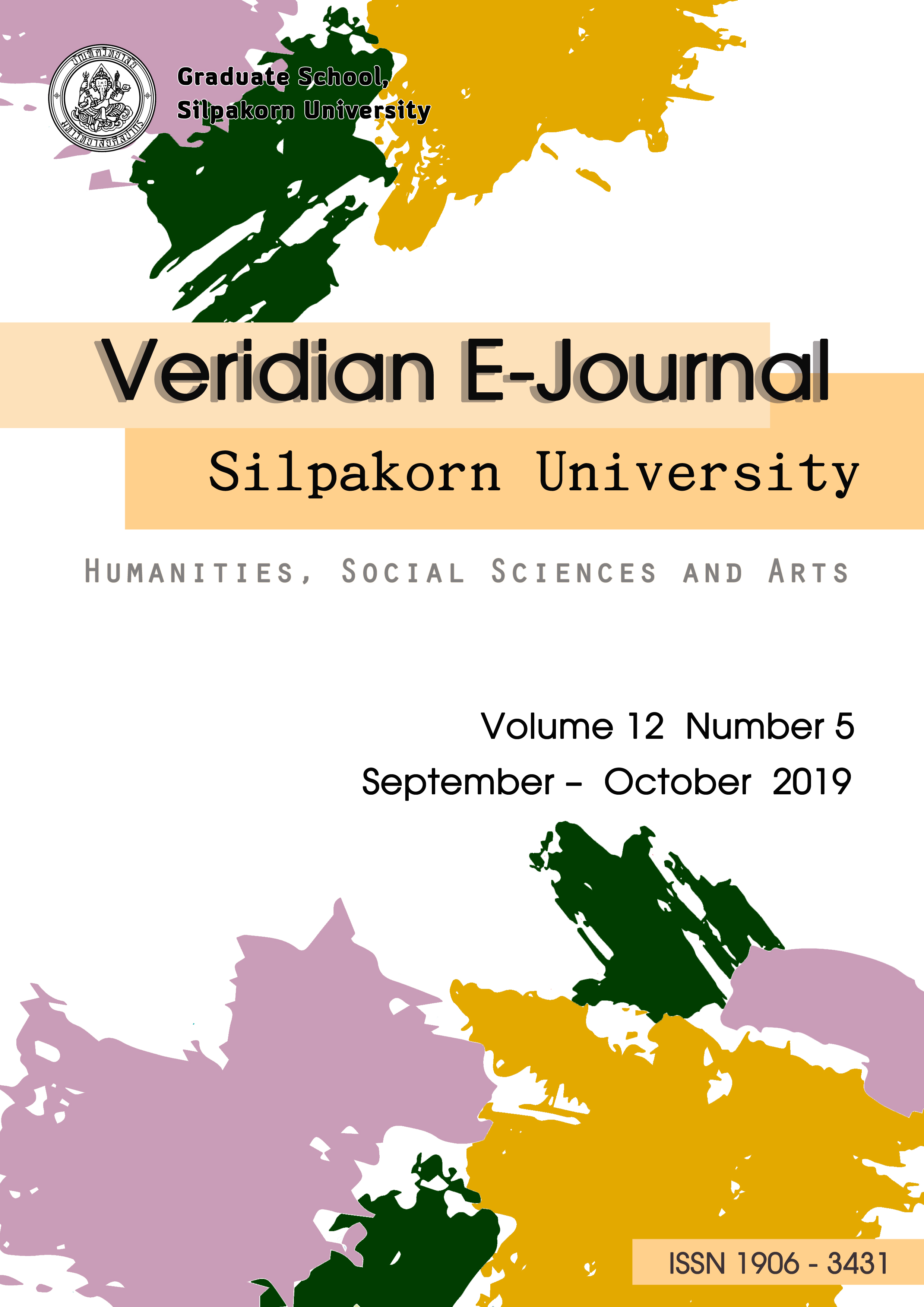วัฒนธรรมการลอยนวลพ้นผิด และกระบวนการสร้างความชอบธรรมให้แก่ผู้กระทำความผิด ในกรณีปราบปรามและสังหารผู้ชุมนุมทางการเมืองในประเทศไทย (Culture of Impunity and the Creation of Legitimization for the Perpetrators in the Repression and Killings of Thailand’s Political Protestors.)
Main Article Content
บทคัดย่อ
การวิจัยนี้มีจุดมุ่งหมายเพื่อ 1) ศึกษาลักษณะความรุนแรง 2) ศึกษากระบวนการในการสร้างความชอบธรรมให้ผู้กระทำความผิด และ3) ศึกษาการไม่นำตัวผู้กระทำความผิดมาลงโทษ จากกรณีที่เคย เกิดขึ้นทั้ง 4 คือ เหตุการณ์ 14 ตุลาคม 2516, เหตุการณ์ 6 ตุลาคม 2519, เหตุการณ์พฤษภาทมิฬ 2535 และการปราบปรามการชุมนุม ในเดือนพฤษภาคม 2553 โดยเป็นการวิจัยเชิงเอกสาร วิเคราะห์ข้อมูลเอกสาร ที่เกี่ยวข้อง ผลการศึกษาพบว่าทั้งสี่เหตุการณ์ มีการใช้กองทัพเพื่อก่อความรุนแรงในด้านกายภาพอย่างชัดเจน ขณะที่การสร้างความชอบธรรมเหตุการณ์ทั้งสี่ ได้นำประเด็นด้านความมั่นคงมาอ้างรองรับความรุนแรง ซึ่งรายละเอียดจะแตกต่างตามบริบทและสาเหตุของเหตุการณ์ ส่วนกระบวนการไม่นำตัวผู้กระทำผิดมาลงโทษ เหตุการณ์ 14 ตุลาคม 2516 ผู้บงการออกนอกประเทศก่อนมีการสอบสวนความผิด แต่ได้รับการซักฟอก จากกลุ่มบุคคลน่าเชื่อถือในสังคม ขณะที่เหตุการณ์ 6 ตุลาคม 2519 และพฤษภาทมิฬ ใช้กฎหมายนิรโทษกรรมในการสร้างการลอยนวลพ้นผิด ซึ่งต่างจากเหตุการณ์ในเดือนพฤษภาคม 2553 ที่ใช้กลไกขององค์กรอิสระในการซักฟอกความผิด
The purposes of this research were to: 1) study violence characteristics; 2) study the process of legitimization for the perpetrators; and 3) study the cases that the perpetrators had not been brought to the process of judgment from four incidents including The popular uprising of 14 October 1973, Thammasat University massacre (6 October 1979), Black May (1992) and 2010 Thai military crackdown. The author conducted study and analysis in relevant documents and information. The findings proved that military obviously used violence in all four incidents. Whereas, the four incidents were justified by claiming public security for justice of violence use. The details were different in accordance with contexts and reasons of incidents. In the meantime, the perpetrators had not been brought to the process of judgment due to varied reasons. The popular uprising of 14 October 1973, the dictator fled from the Kingdom prior to the investigation process took place and credible persons helped cleaning his image. While the amnesty law was implemented in Thammasat University massacre (6 October 1979) and Black May (1992) for impunity, the independent entity mechanism was used for questioning perpetrators from 2010 Thai political crackdown.

